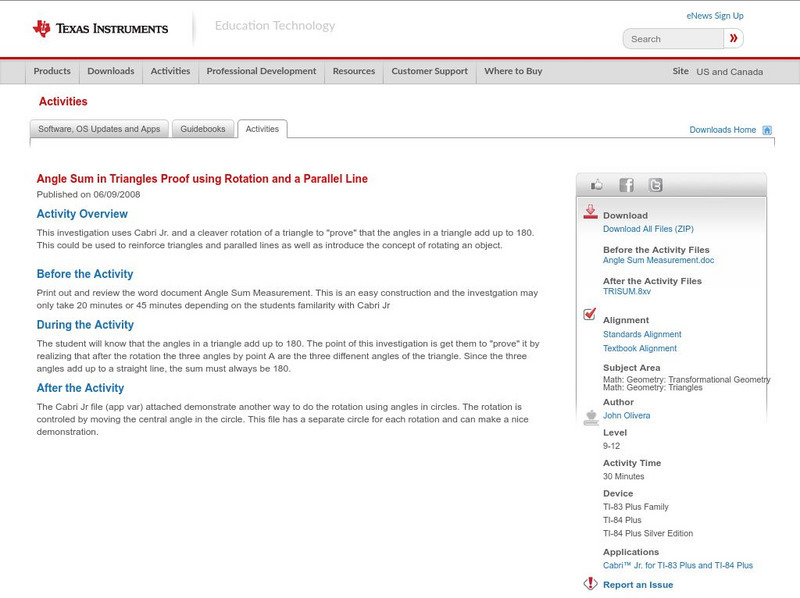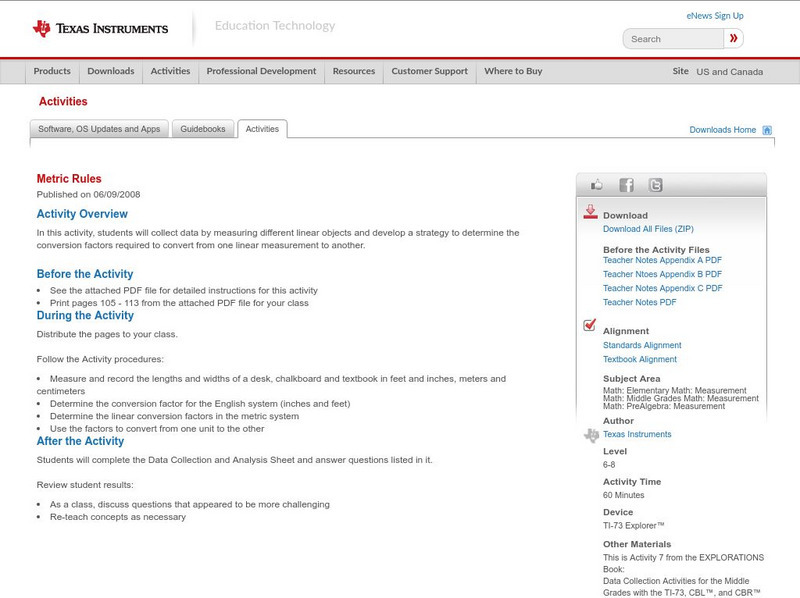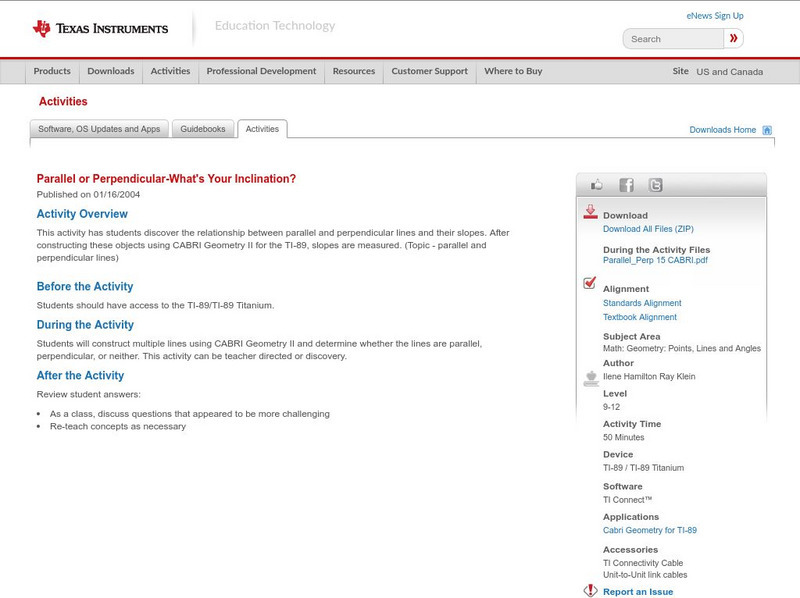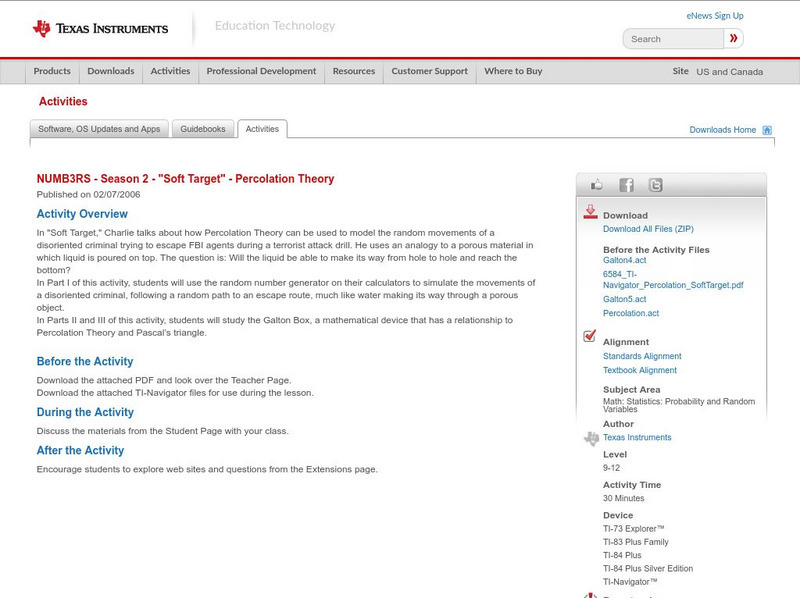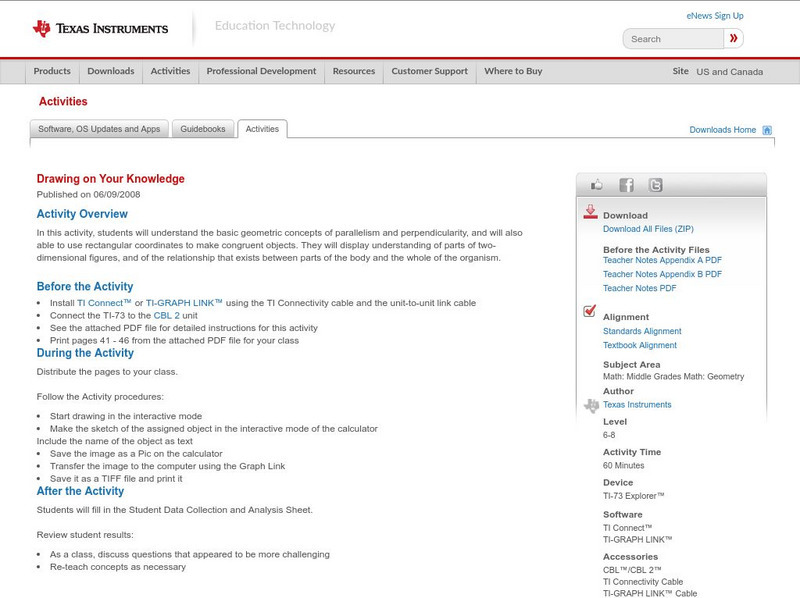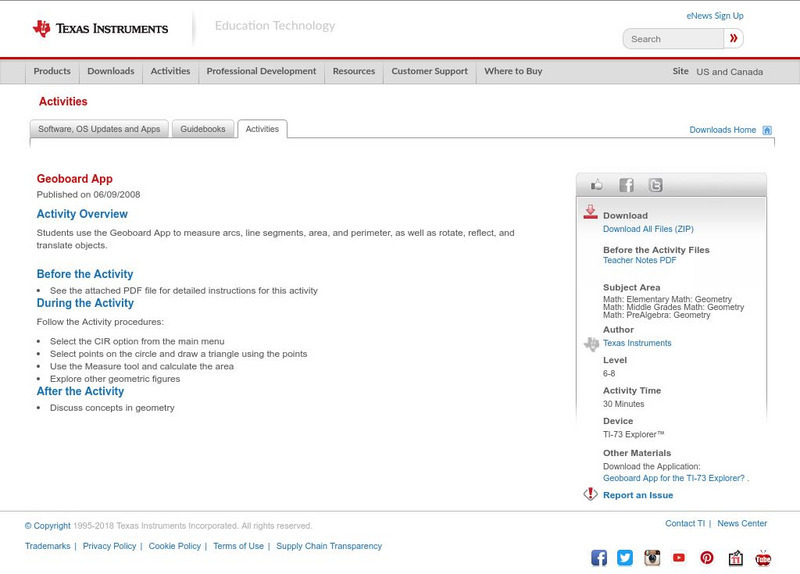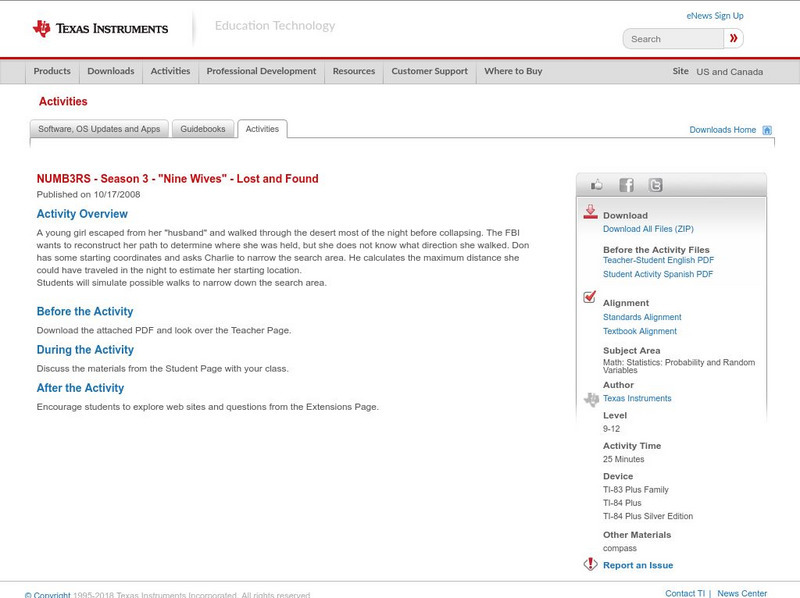Texas Instruments
Texas Instruments: Angle Sum in Triangles Proof: Rotation and a Parallel Line
This investigation uses Cabri Jr. and a cleaver rotation of a triangle to "prove" that the angles in a triangle add up to 180. This could be used to reinforce triangles and paralled lines as well as introduce the concept of rotating an...
Texas Instruments
Texas Instruments: Metric Rules
In this activity, students will collect data by measuring different linear objects and develop a strategy to determine the conversion factors required to convert from one linear measurement to another.
Texas Instruments
Texas Instruments: Exploring Transformations
The students will explore reflections of an object over the x-axis, y-axis, and origin.
Texas Instruments
Texas Instruments: Centripetal Acceleration
In this activity, students observe the centripetal acceleration of an object in uniform circular motion. Relate the changes in velocity and radius to the centripetal acceleration.
Texas Instruments
Texas Instruments: Parallel or Perpendicular What's Your Inclination?
This activity has students discover the relationship between parallel and perpendicular lines and their slopes. After constructing these objects using CABRI Geometry II for the TI-89, slopes are measured. [Requires Adobe Reader.]
Texas Instruments
Texas Instruments: Numb3 Rs: Percolation Theory
Based off of the hit television show NUMB3RS, this lesson introduces students to the chaotic topic of Percolation Theory, in which the major question is "Can you get there from here?" Students use their calculators extensively in their...
Texas Instruments
Texas Instruments: Looking at Statistics Through Circles
In this activity, students will measure round objects to determine the circumference and diameter, and use the data to explore geometric concepts of the circle with statistics.
Texas Instruments
Texas Instruments: Good Vibrations Activity Modeling Motion
The student will investigate Hooke's law and the position, velocity and acceleration of an object oscillating vertically on a spring.
Texas Instruments
Texas Instruments: Drawing on Your Knowledge
In this activity, students will understand the basic geometric concepts of parallelism and perpendicularity, and will also able to use rectangular coordinates to make congruent objects. They will display understanding of parts of...
Texas Instruments
Texas Instruments: Discovering Pi
Students will measure the circumference and diameter of round objects. They will send in their measurements through TI-Navigator and discover the relationship between the circumference and diameter.
Texas Instruments
Texas Instruments: Jason: Tracking the Path of Animals
Rainforest at the Crossroads: Simulate the motion of an animal using a rectangular object placed at different positions on the floor. Then measure and graph the animal's coordinates, and examine its path.
Texas Instruments
Texas Instruments: Give Me a Hand or Leaf Me Alone
In this activity, students' find the surface area of geometric shapes cut from card paper and relate it to its mass. They use this data to find the surface area of irregularly shaped objects.
Texas Instruments
Texas Instruments: Geoboard App
Students use the Geoboard App to measure arcs, line segments, area, and perimeter, as well as rotate, reflect, and translate objects.
Texas Instruments
Texas Instruments: Falling Down Adventure 5
Students use the CBR 2 to study how a change in mass affects the average speed of a falling object. They graph distance as a function of time, and interpret and analyze graphs representing motion.
Texas Instruments
Texas Instruments: 47 Ways To
In this investigation teams of students will explore variations in measured data. Students will drop an object from the same height 47 times and record the time for each drop.
Texas Instruments
Texas Instruments: Numb3 Rs: Lost and Found
Based off the hit television show NUMB3RS, this lesson introduces students to chaos theory, and specifically Levy flight paths. These allow students to "trace back" where an object may have originated, given its endpoint. This lesson is...
